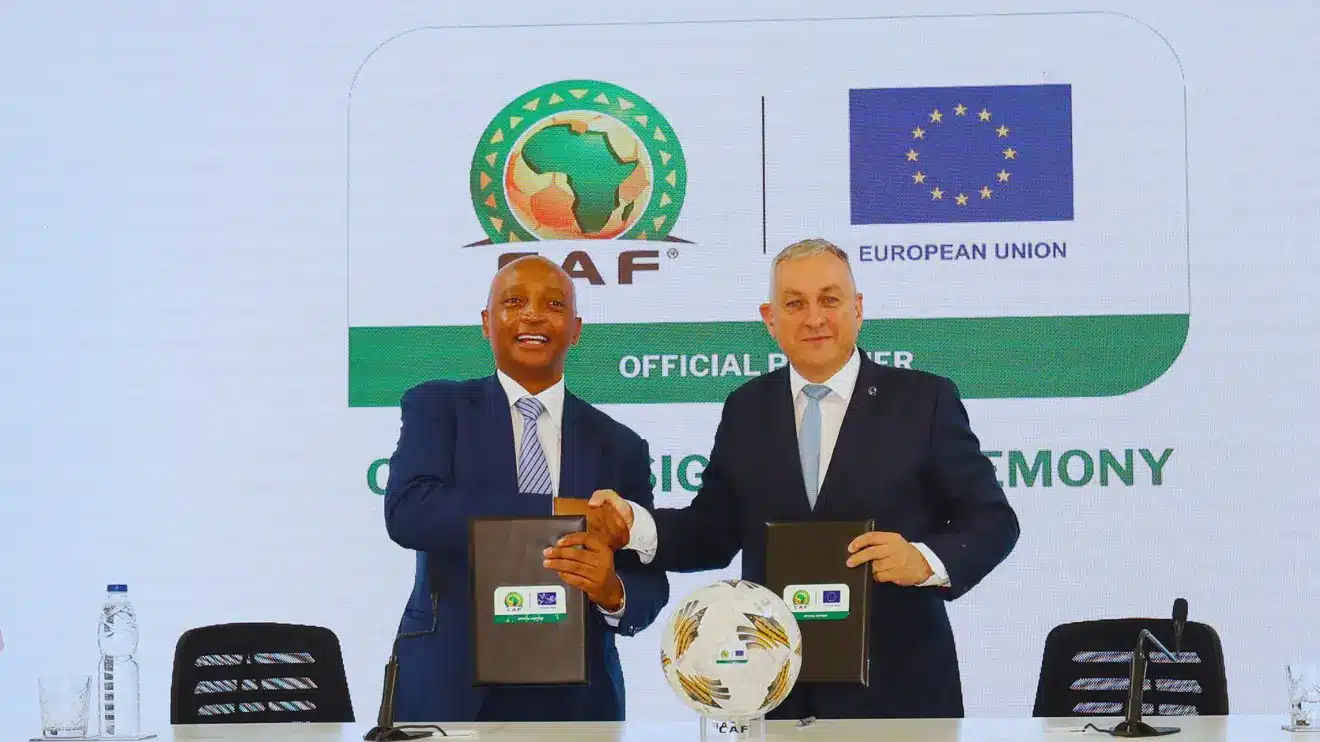EU and CAF forge groundbreaking alliance to boost African football and social development

The European Commission has entered a landmark partnership with the Confederation of African Football (CAF), committing to support key African football tournaments as part of a broader initiative to strengthen ties between Europe and Africa through sport.
The agreement, signed in Cairo by CAF President Patrice Motsepe and European Commissioner Jozef Síkela, designates the European Union as an official partner of several major CAF competitions.
These include the Africa Cup of Nations (AFCON) tournaments in 2025 and 2027, the 2024 Women’s Africa Cup of Nations, and the African Schools Football Championship.
The collaboration is not merely about promoting football. Both organisations have underscored their shared vision of using sport as a driver of social progress, education, and unity across the African continent.
By aligning with CAF, the European Union aims to empower young people and foster cross-cultural connections, in what is being hailed as a new era in Africa-Europe relations.
CAF highlighted that the agreement reflects growing international recognition of its recent reforms, particularly in areas of governance and transparency.
The organisation has emphasised its efforts to root out corruption, promote fair play, and embrace inclusivity—values that also underpin the European Union’s approach to international partnerships.
European Commission President Ursula von der Leyen welcomed the partnership, calling it “a decisive step towards empowering youth and creating meaningful human and cultural ties.”
Her remarks underscore the broader diplomatic ambitions behind the initiative, which aspires to transform football into a platform for deeper collaboration between the two continents.
One of the most significant elements of the deal is the support for the African Schools Football Championship, which has already engaged as many as 33,000 schools across the continent.
This competition, which reaches deep into local communities, is viewed by CAF as a vital instrument for social transformation.
By nurturing talent at the grassroots level, the championship not only identifies future stars but also instils life skills, discipline, and a sense of community in the young participants.
In practical terms, the EU’s involvement is expected to enhance the visibility and operational capacity of CAF’s tournaments. While financial details were not disclosed, the agreement signals a commitment to improving infrastructure, supporting youth development programmes, and ensuring broader access to the sport for both boys and girls.
CAF President Patrice Motsepe described the deal as a “milestone in our commitment to making football a catalyst for education and social cohesion in Africa.” He added that the partnership with the EU brings international credibility to CAF’s efforts to reform and modernise African football governance.
Commissioner Síkela echoed this sentiment, noting that the agreement was not solely about football, but about “building long-term bridges between people through shared values and aspirations.”
This strategic alignment between the EU and CAF represents a shift in how sport is viewed on the global stage—not simply as entertainment, but as a powerful tool for diplomacy and development.
As both institutions continue to deepen their collaboration, the hope is that football will inspire lasting change, empowering the next generation of African leaders both on and off the pitch.




